Whether you’re bivvying on a glacier or camping in your car — the ability to sleep well is essential in remaining energized and ready to perform. It’s among the most important bodily functions we have. Sleep restores your body back to normal and gives you the energy to continue. Without it, the fatigue stacks up until your body deteriorates. Coffee can only help so much.
The problem is that getting a good night’s sleep while camping can be tough. This is especially true if you’re used to sleeping indoors on a mattress at a perfect 70 F. Even if that isn’t the case, there are numerous circumstances that can make sleep more difficult. You could be at a high altitude, tent-camping in a blizzard, or in the back of your car at a noisy truck stop.
This article covers several strategies and skills to help you in getting a good night’s sleep wherever you’re camping.
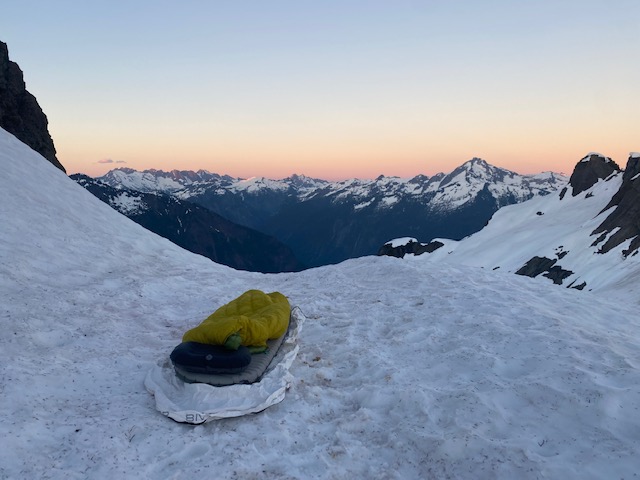
Experience and Practice
By virtue of biology, you’ll sleep worse in unfamiliar places. The brain is “on guard” while sleeping in new places. That “on guard” state consumes energy and takes away from your sleep quality.
This is especially the case if you’re not used to sleeping in unfamiliar places. If you camp just a few times a year, it’s only natural that your sleep will be affected. Your mind is used to spending every night in one spot. When that changes, your instincts try to protect themselves, sacrificing sleep quality in the process.
This theory applies on many levels. If you spend every single night of your life sleeping outside, you may think you’re ready for anything. But if you spent all those nights in warm weather and you’re trying to winter camp, it will register as an unfamiliar place. Your sleep will be affected.
The solution to this is to gain more experience sleeping in new places. With enough experience, no place will be “unfamiliar” to your mind, and your sleep will be high quality. If direct experience isn’t possible, simulated practice can accomplish the same.
Frequent travelers and campers of any type gain the skill to sleep anywhere in any conditions. That’s because of their experience in different places. Their mind and body are acclimated to constant change, and the brain no longer feels the need to protect itself during the night. It becomes routine.
The skill transcends well too. At the extreme end — if you’re a soldier sleeping to the sound of gunfire, the back of an SUV at a noisy truck stop won’t be a big deal. If you spent your childhood sleeping in a cupboard under the stairs, a crinkly backpacking mattress will be fine.
To summarize: The more experience you gain, and the more varied those experiences are, the better your future sleep will be — no matter where you are.
What if you aren’t able to get vast swaths of experience? That’s where practice comes in. Experience can be simulated.
If you’re used to sleeping indoors on a comfy mattress, that has to change. Otherwise, won’t ever be able to camp well.
If you’re trying to get a good night’s sleep in your car when road-tripping, don’t let the road trip be the first time you do that. Sleep in your car in the driveway a few times. You’ll become acclimated to that environment change, and sleep better on future trips as a result.
If you’re trying to get better sleep while backpacking, use your backpacking setup at home. You could sleep in your sleeping pad, or even better: pitch a tent in your backyard and sleep there.
If you want to winter camp, try to sleep outside during cold temperatures. You’ll get used to it, and winter camping will become easy.
Finally, remember that experience and practice of any kind compounds across many situations. The more unfamiliar places you sleep or travel through, the more comfortable your mind will be. If you’re a frequent traveler and are in hotels often, camping will be easier than for someone who’s always in their own bed. If you spend a lot of time outdoors in the elements, you’ll be better off camping than someone who’s indoors 24/7. The more variety in your life, the easier sleeping anywhere becomes.
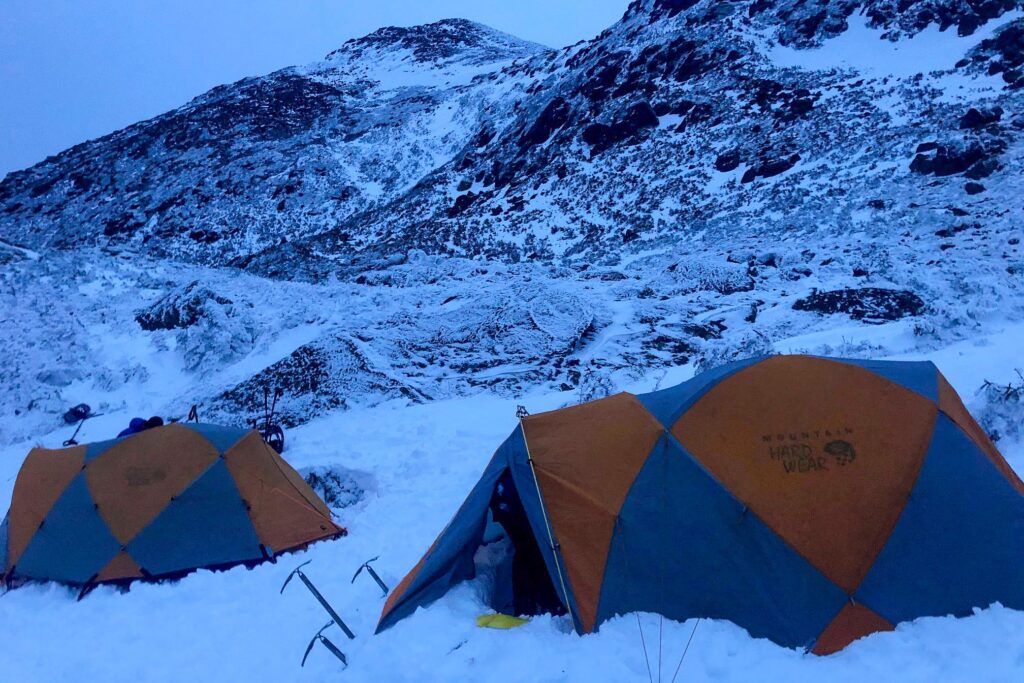
A Little Bit of Preparation
5 minutes of preparation can save 5 hours of lost sleep. When you’re about to tuck in for the night, expend the effort needed in making sure everything is comfortable.
Is the place where you’ve pitched the tent not level? Sacrifice some effort and move the tent. It’ll be worth it for the energy you’ll have gained in not losing sleep.
Is your car camped in an uneven spot, or is it exposed to nearby noise? Move the vehicle, level it somehow, or put earplugs in. It will take some effort, but you’ll gain more energy in not having lost sleep.
Are you camping in a sketchy or dangerous location, but are too tired to move your tent or vehicle elsewhere? Move it regardless. By knowing and recognizing that a place is dangerous, your mind will be on guard the entire night and keep you awake.
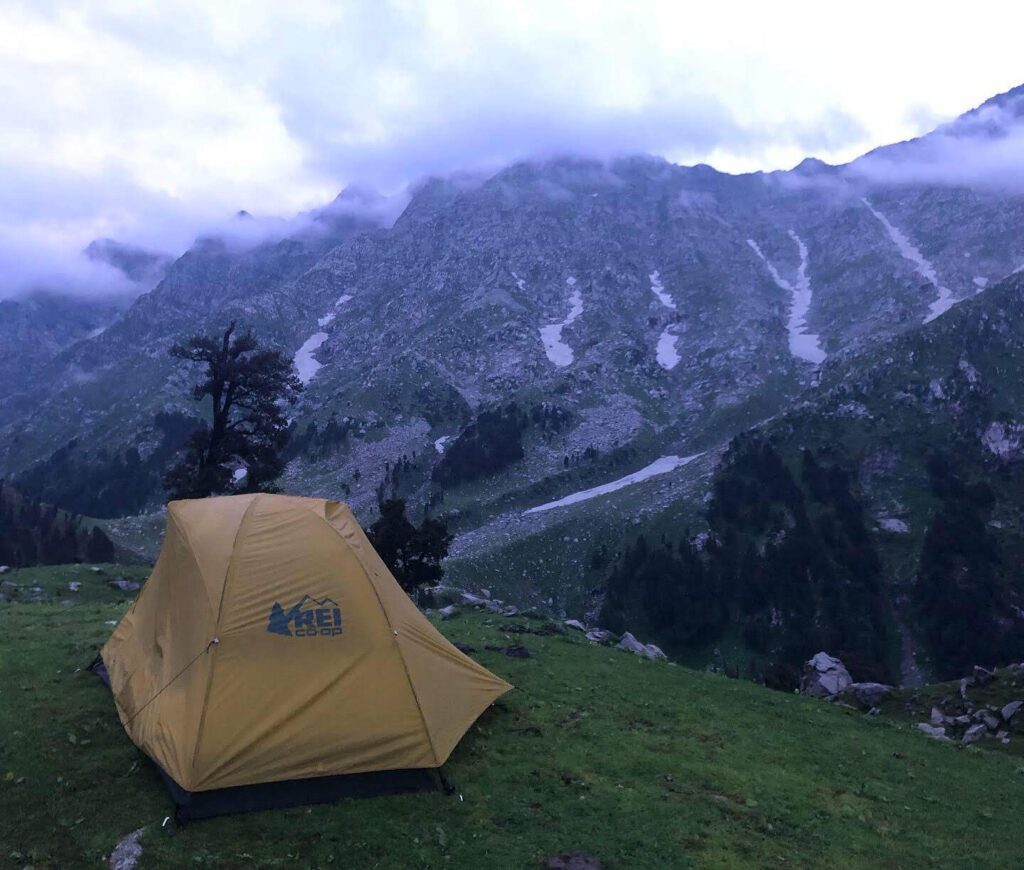
Luxuries are Okay
You might be the kind of person who needs a thick pillow to lay your head on. You might not like being cold and want the warmest sleeping bag possible. That’s okay. If that’s necessary for you to get a good night’s sleep, try not to forego it. As you gain experience you might not need those “luxuries.” But, if they are essential at the moment, sacrificing sleep to forego them is never worth it.
Having to sacrifice “luxuries” is common in backpacking, mountaineering, and climbing. Every luxury is more weight in your pack, which will slow you down. The problem with this is: The energy lost with a poor night’s sleep will be more than the energy lost with a few extra pounds on your back. It’s simple math. You’ll conserve more energy and move faster if you can wake up refreshed each morning.
When I’ve brought a too-cold sleeping bag to save weight, it has always come back to bite me. Shivering to sleep and losing my energy the next morning is worse than a 0.1 mph hit to my speed. I also bring a small inflatable pillow with me everywhere I camp. The increased quality of sleep is worth its weight.
If you’re on the fence about a warm sleeping bag, always go with the warmer one. It’ll be worth the quality of sleep. If you need a cup of chamomile tea to sleep, bring it with you and waste the 5 minutes it takes to brew it. Sleep quality has to be the priority because that’s where day-after-day energy comes from.
The same principle applies to car camping. If you’re able to, invest in the best mattress you can. Bring a real pillow too. It might take up space and cost money, but it will be worth it through the increased sleep quality. When I switched from a 2-inch mattress to a 4-inch self-inflating mattress in the back of my former SUV, the difference was night and day.
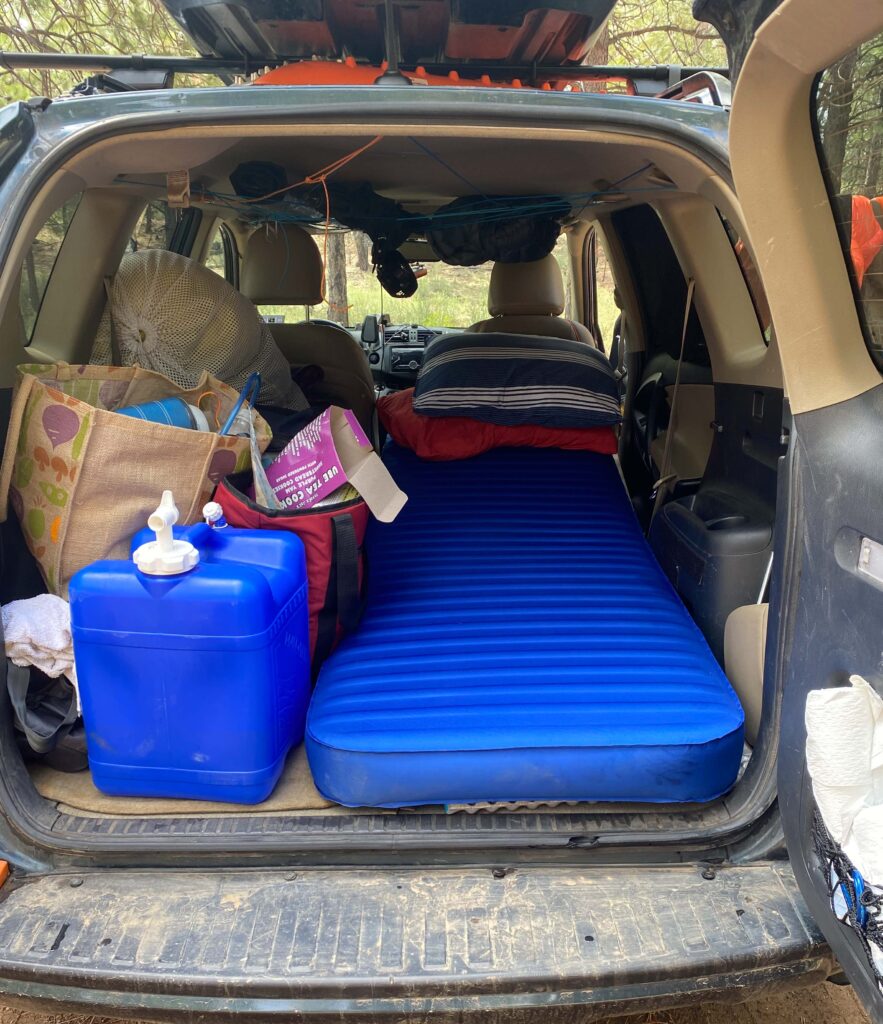
Fix your Circadian Rhythm
I used to be guilty of this. In college, I’d sleep at 1 a.m. and wake up at 9 a.m. When I’d camp, I’d get horrible sleep because my sleep schedule was screwed up.
The solution is to get your sleep schedule as close to the sun cycle as possible. This means that you need to sleep early and wake up early. The more you do this, the longer you can sleep. This is because the sun will be what wakes you up when camping. The further your schedule is from that, the fewer hours of sleep you’ll receive.
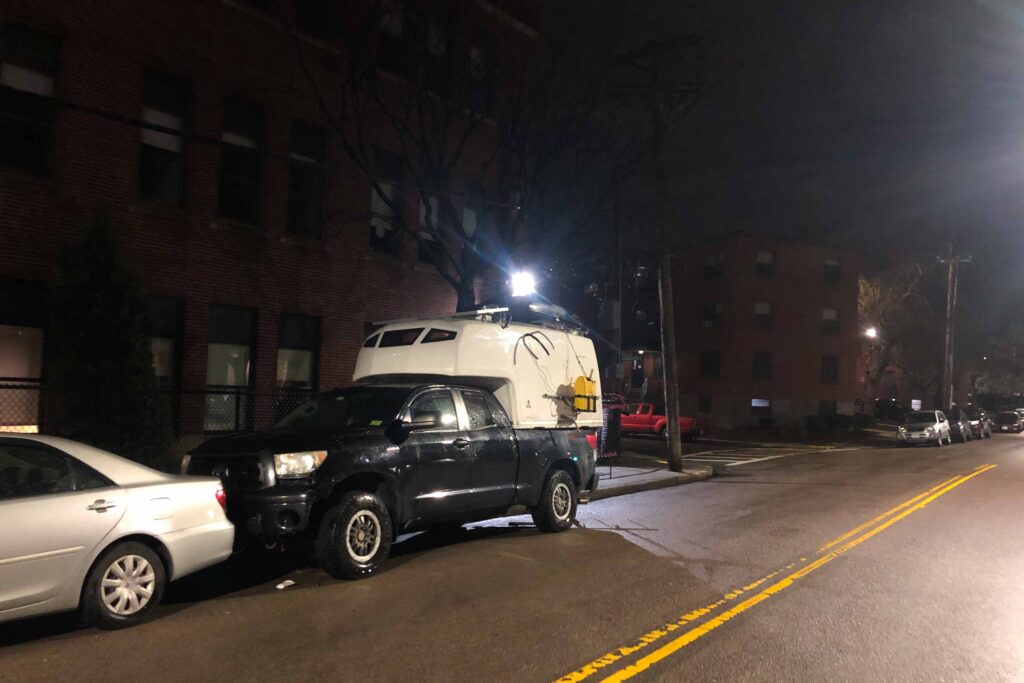
The U.S. Military Method
This method is taught to soldiers, and can be applied to camping as well. This article describes it in detail. It teaches military personnel to sleep anywhere, anytime, within minutes. In order to get the most out of it, it should first be practiced and used regularly at home. Then, it can be expanded to more situations. It’s useful in a military context, and a camping context too. After all, soldiers in the field are technically camping every night.
Sleeping Pills
Sleeping pills are a great tool, but only when used on occasion. Using them often lowers their effectiveness, screws up your body, and can make you dependent on them to sleep.
Sleeping pills are most useful when you’re trying to break your body out of its natural rhythm. If I need to get a 2 a.m. alpine start for a climb the next morning, and I’m used to sleeping at 10 p.m., I’d only get 4 hours of sleep. Instead, I can take a sleeping pill at 8 p.m. and fall asleep earlier. That will yield me an extra 2 hours of sleep and a lot more energy.
Sleeping pills are also great as a last resort. If you know your sleep is poor while camping and nothing you do is helping, you can take a sleeping pill or two. As long as it’s done in moderation, it can be a valuable tool in regaining energy through sleep when nothing else works.
Final Thoughts
I believe the best skill any frequent traveler could learn is the ability to camp in any environment. Being able to sleep in any location and wake up rested and refreshed is an incredible asset. It allows travel and backcountry trips to be self-sustaining and to continue indefinitely.
Exposure to more places trains your mind to be safer as well. If you’re always on high alert, it’s a detriment and isn’t keeping you any safer. On the other hand, the ability to fall asleep anywhere teaches your mind what to ignore and what to pay attention to.
When in a tent, I can sleep through violent storms and my tentmate’s snoring, but be woken up by their voice. When camping on a busy street, the sound of honking keeps me asleep, but a friend gently knocking on my camper to say hi wakes me up.
So, use these tips, and get out and camp. Every time you camp in a new place, you’re training your mind and body to be more resilient. It adds more environments to your memory bank. The more you do it, the easier it’ll become.
